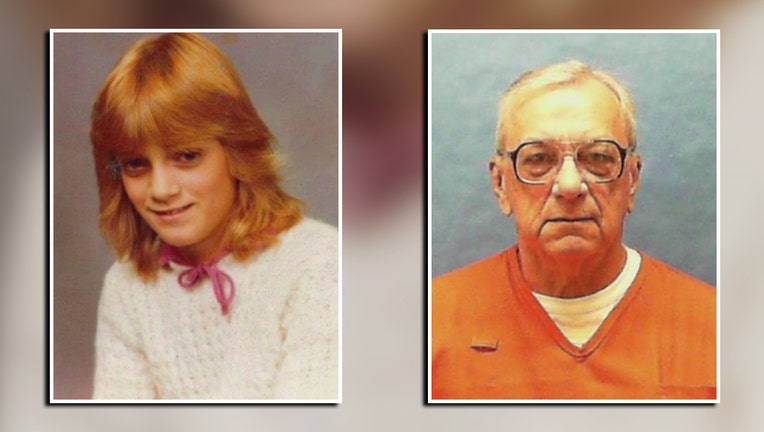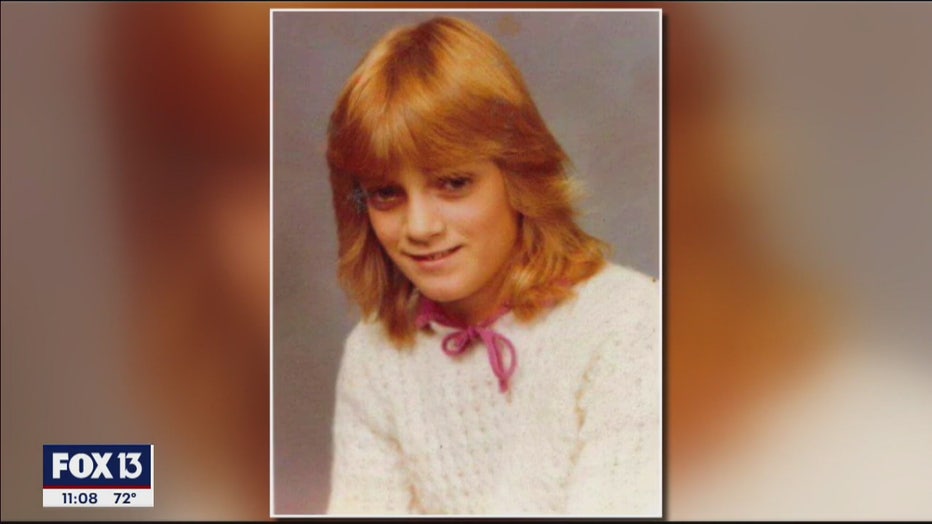Justices reject appeal in high-profile Pinellas murder case

TALLAHASSEE, Fla. - In a case that has drawn national attention because of the involvement of jailhouse informants and a purported confession by another man, the Florida Supreme Court on Thursday rejected an appeal by a Death Row inmate convicted of murdering a 14-year-old girl in 1985 in Pinellas County.
Justices, in a 6-1 decision, refused to overturn the conviction of James Dailey, now 75, in the murder of Shelly Boggio, whose nude body was found with multiple stab wounds floating in water near Indian Rocks Beach.
Dailey and co-defendant Jack Pearcy were convicted of murdering Boggio, who had been hitchhiking before her death. Pearcy, now 66, was sentenced to life in prison, while Dailey received a death sentence.
Attorneys from Florida and other states have fought to overturn the conviction, contending that Dailey is innocent of the murder. In part, that has been based on a signed declaration in 2019 by Pearcy that he --- not Dailey --- killed Boggio.
But the Supreme Court pointed Thursday to conflicting statements in a subsequent deposition and Pearcy’s refusal to testify in a 2020 evidentiary hearing.
"During the deposition, Pearcy repeatedly denied that he was solely responsible for the murder, contrary to what he had stated in his December 2019 declaration," said the majority opinion by Chief Justice Charles Canady and Justices Ricky Polston, Alan Lawson, Carlos Muniz, John Couriel and Jamie Grosshans. "Pearcy repeatedly explained that he lied in the 2019 declaration in order to keep Dailey from being executed and to keep Dailey’s attorneys working on the case. Pearcy said he did this because his own appeals were exhausted and he had no advocacy for himself, so he hoped that Dailey’s attorneys would keep working on Dailey’s case and possibly discover new evidence that would ultimately help Pearcy’s case."

From 2019: Victim's family prepares for killer's execution
Family members of a teenager killed in 1985 welcomed the signing of the death warrant for convicted killer James Dailey.
PREVIOUS: Killer refuses to clear co-defendant of teen's 1985 murder
Another key issue in the effort to overturn Dailey’s conviction has been the role of a jailhouse informant, Paul Skalnik, whose testimony helped lead to the guilty verdict.
Attorneys for Dailey argued at the Supreme Court that a prosecutor during Dailey’s 1987 trial had allowed false testimony from Skalnik. Skalnik testified that he had not faced criminal charges involving rape or physical violence, but he had been arrested in 1982 on a charge of lewd and lascivious assault on a child under 14.
The Supreme Court, however, said the argument was "merely a repackaging" of a claim in an earlier appeal.
"There is still no reasonable possibility that information regarding Skalnik’s lewd and lascivious assault charge would have affected the jury’s verdict," said the 21-page majority opinion, which upheld lower-court rulings.

Shelly Boggio
Justice Jorge Labarga, however, wrote a dissenting opinion, citing testimony of Skalnick and two other jailhouse informants and the conflicting statements of Pearcy.
"In this case, there was no forensic evidence linking Dailey to Boggio’s murder, and a significant component of the state’s case was the testimony of three inmates who were housed in the same jail as Dailey while he awaited trial," Labarga wrote. "These inmates testified that Dailey admitted to Boggio’s murder, and given the lack of forensic evidence, this testimony was likely essential to the jury’s finding of guilt."
Labarga also wrote that while "finality in judicial proceedings is important to the function of the judicial branch, that interest can never overwhelm the imperative that the death penalty not be wrongly imposed."
Thursday’s ruling was the latest step in years of legal battles in the Dailey case. Gov. Ron DeSantis in 2019 signed a death warrant for Dailey, though that was later put on hold.
In a March brief at the Supreme Court, Dailey’s attorneys wrote that he is innocent and that the case involves only circumstantial evidence.
"Dailey’s case bears the hallmarks of the archetypal wrongful conviction, from a grossly faulty investigation to a trial rife with unreliable evidence and constitutional errors," the brief said. "No physical, forensic, or eyewitness evidence connected Dailey with the crime."

